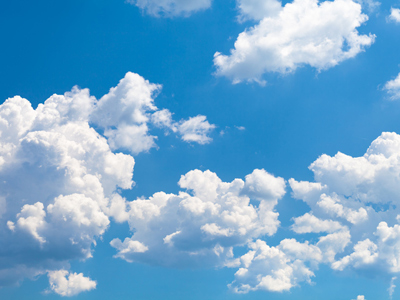This Geography quiz will challenge you on weather systems. A popular topic of conversation in many areas of the world is the weather. Forecasting the weather is a difficult task because the atmosphere is very large and made of a mixture of gases that are constantly moving around. Luckily for weather forecasters, weather systems can make their job easier. As they pass a particular place, a predictable sequence of weather changes can be seen.
The rotation of the Earth, different amounts of heating in different areas of the Earth and high-altitude winds called the jet stream control the movement of weather systems around the Earth. The UK is in a wind belt known as the Westerlies and most weather systems arrive from the Atlantic Ocean.
Occasionally, a high pressure weather system develops over Europe and can block these systems from the Atlantic. This tends to allow cold air from the North Pole to arrive in the UK from the north or the east, bringing sub-zero temperatures to the British Isles.
For your GCSE, you need to know what happens as a depression passes and why a high pressure area (also known as an anticyclone, produces clear skies and no rain. Let's start with the anticyclone. An area of high pressure is formed as a mass of air sinks down towards the Earth's surface. Air at higher altitudes is colder than at lower altitudes, so as the air in the anticyclone sinks, it warms up. Warm air can hold more moisture than cold air. That fact means that clouds do not form in an anticyclone, leaving clear skies and no rainfall. During the UK summer, they bring hot and dry weather but in the winter they bring clear skies with cold and frosty nights.
At about thirty degrees north and south of the equator, there is a narrow region of the Earth where air is always sinking - these areas are called the Horse Latitudes and is where hot dry deserts are found. The air is always sinking back to Earth over the poles which is why the poles are cold deserts as there is little precipitation.
Low pressure areas (depressions) contain rising air and so you get clouds forming and rain falling. Where the warm air is moving forward and rising over a mass of colder air, you have a warm front. At the back of the depression, there is a cold front. The warm front has a shallower profile than a cold front. At the warm front, warm moist air rises over the colder air, forming nimbostratus clouds that produce steady light rain. As the rain falls, there is less moisture in the air, so as the air continues to rise, the nimbostratus become altostratus clouds which only give a light drizzle. As the warm air rises even further, most of the excess water vapour has been lost as precipitation and the only clouds formed are the high-altitude cirrus. These do not drop any precipitation.
What you need to remember is that, as the front passes, you see the cirrus clouds first, then you get the drizzly altostratus followed by the rainy nimbostratus. After that, you are into an area of clearer skies and no rain. Then the cold front passes. Here, cold air from behind the warmer air forces it steeply upwards. Cooling is more rapid than on the warm front, so you get heavy rain which gives way to showers. Where the cold and warm fronts meet and merge together, it creates an occluded front where the weather is very unsettled. During winter, the precipitation of a depression can fall as snow.








